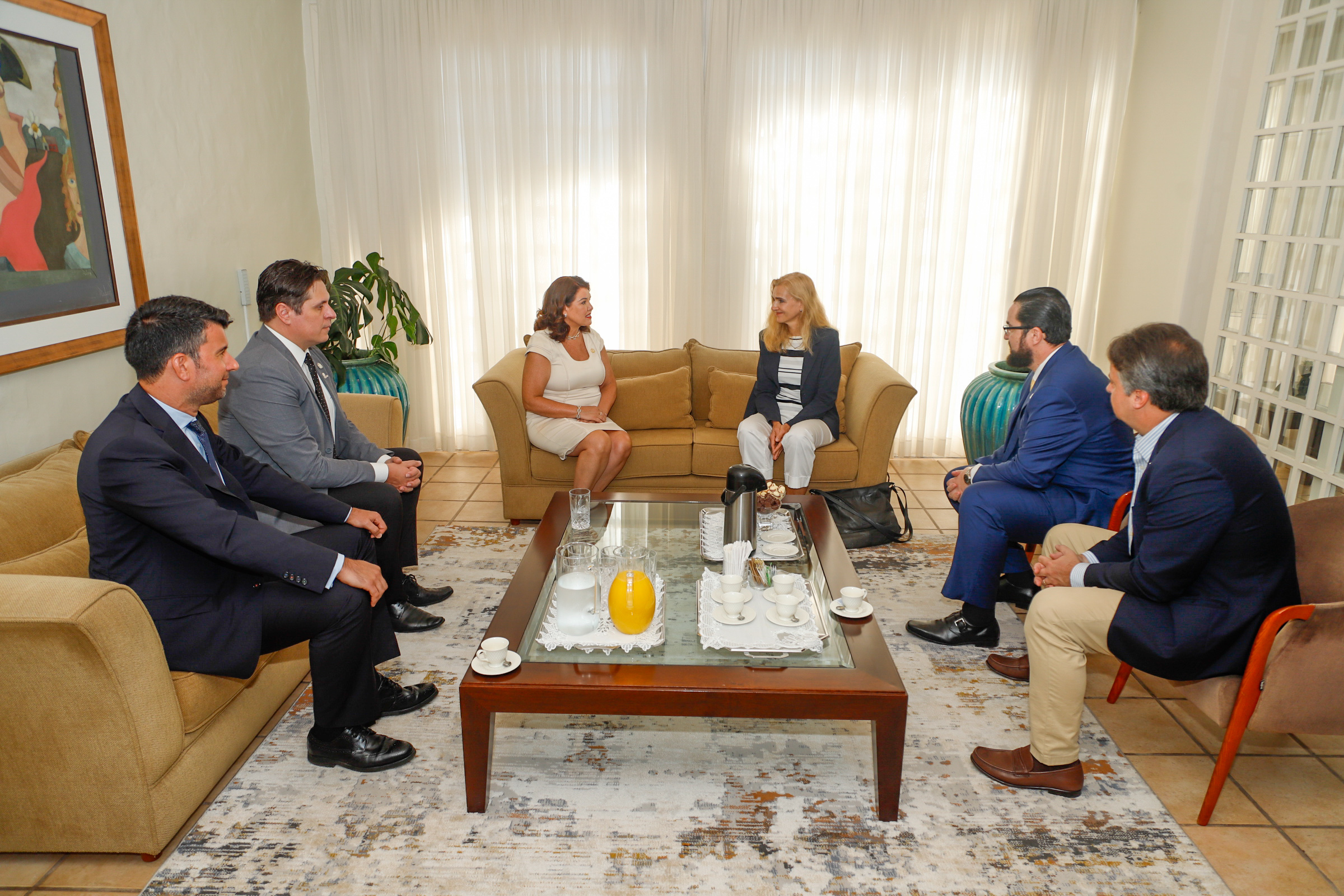Educational collaboration and sustainable economy, themes of meeting with the Ambassador of the European Union

The vice-governor of Santa Catarina, Marilisa Boehm, met this Tuesday (30) with the ambassador of the European Union in Brazil, Marian Schuegraf. Among the topics covered, international cooperation, educational exchanges, sustainable economy and female entrepreneurship permeated the dialogue, which also included the participation of secretaries Juliano Froehner (Foreign Affairs), Marcelo Fett (Science, Technology and Innovation) and the president of Fapesc , Fábio Wagner Pinto.
According to Marilisa Boehm, there are several common factors to be worked on. “I believe we will stablish good partnerships, such as the area of science and technology, entrepreneurship and bilingual schools. The ambassador even highlighted the importance of a pretty common point, the importance of free universities, which corroborates the fact that Santa Catarina is meeting what the world demands today. Our state is a model for Brazil, being a pioneer with the Free University program. Today, students who are unable to pay for university no longer need to suffer as they pass the entrance exam and would need to pay for, for example, medical school.”
The ambassador, who was accompanied by the representative of the European Investment Bank, Marco Diogo, said she was “very impressed” with the visit to Santa Catarina. “I have the impression that people here are very progressive when it comes to sustainability and are also open-minded when it comes to international cooperation. I am also very impressed to see the commitment to women, encouragement of female entrepreneurs and I am very sure that we will intensify our relations, especially if we can manage to finalize the EU-Mercosur agreement. This will be the opportunity for us to take a leap forward in our relations.”
Also on the educational front, the Secretary of Foreign Affairs (SAI), Juliano Froehner , highlighted the feasibility of educational exchanges, involving bilingual education for elementary school children throughout the State. “We also align issues regarding the sustainable economy, foreseeing the possibility of bringing sustainability to the industrial environment, bringing the State of Santa Catarina closer to the European Union in this strong, continuous process that has no way back. In other words, they are important partnerships to remain competitive, with economic growth, but always combined with a vision of sustainable well-being.”
For the Secretary of State for Science, Technology and Innovation (SCTI), Marcelo Fett , there are many fronts that open up as a result of this rapprochement between the European community and Santa Catarina. “With regard to our secretariat, we see the possibility of approaching companies, with entrepreneurs. The ambassador repeated several times that this would be a very productive aspect of this relationship, for the Santa Catarina technology sector, specifically, with the technology sector of the European community as a whole. We are happy with this meeting and hope that this can continue and generate good results.”
The president of the Santa Catarina State Research and Innovation Support Foundation (Fapesc), Fábio Wagner Pinto, who had a previous meeting with the ambassador, said that the diplomat’s arrival opened up a range of possibilities for important partnerships, such as cooperation of master’s and doctorate scholarships, the arrival of Europeans to the state and specific work aimed at technology transfer.
Photo: Richard Casas / GVG
